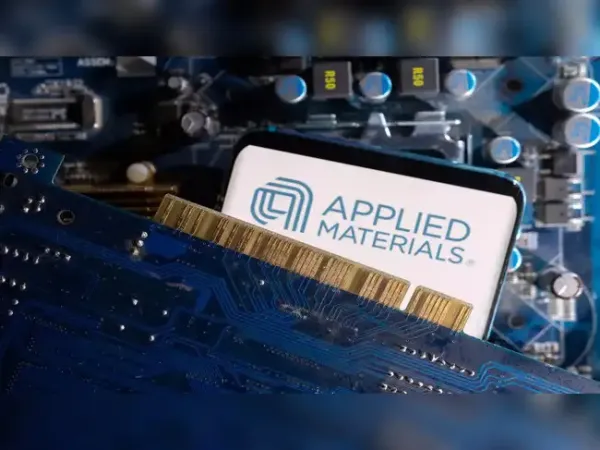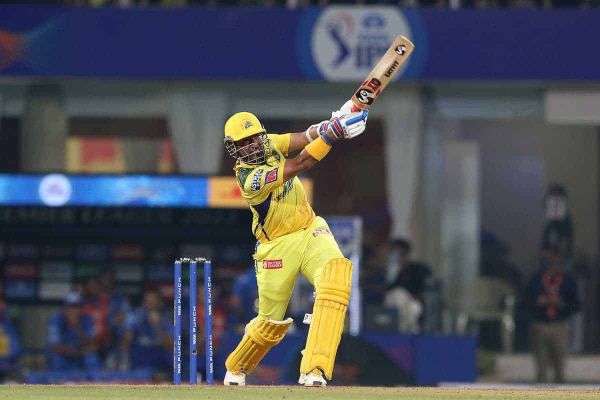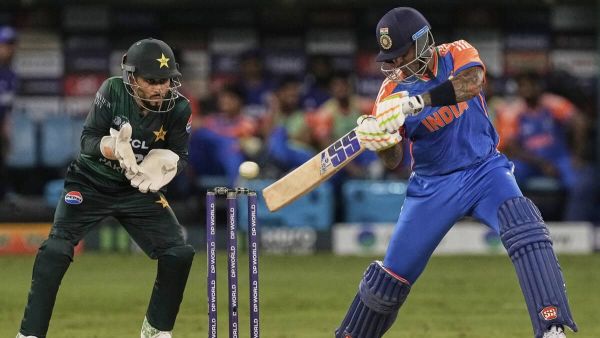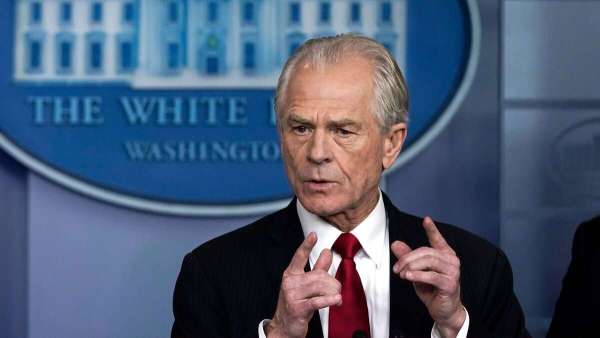Applied Materials is in talks with companies which recently received approvals to set up semiconductor projects in India for potential deals to supply equipment, services and software, a senior executive said.
The government last month approved proposals from SiCSem, Heterogeneous Integrated Packaging Solutions Pvt Ltd, Continental Device India and Advanced System in Package Technologies under the India Semiconductor Mission (ISM) 1.0.
"Our team is going and talking to all of them in terms of what they need. We are in the process of figuring out where they need and what we can offer,” said Suraj Rengarajan, managing director and head of semiconductor products group at the Indian unit of the world’s second largest semiconductor equipment supplier. “We don't have existing relationships with some of them yet. So, we will need to establish relations with all of them,” he told ET.
HIPSPL is a subsidiary of American 3D Glass Solutions (3DGS), a private late-stage high-tech manufacturing business in which Applied Ventures, the venture capital arm of Applied Materials, is an investor.
California-based Applied Materials also sees an opportunity from the Rs 4,000 crore modernisation process at the government-owned Semi-Conductor Lab (SCL) in Mohali.
The project involves replacement of old machines and equipment along with technology upgrade in the existing legacy semiconductor technology of 180 nanometer. As per media reports, the primary bidders for the work include the Tata Group and Tower Semiconductor, along with other companies like Texas Instruments.
"SCL is also expanding. That's something that we are also interested in. It's a request for quotation. They are asking for bids. So, whoever coordinates and manages that, we will work with them to supply everything," Rengarajan said.
Taiwanese semiconductor foundry Powerchip Semiconductor Manufacturing Corporation, a technology partner of Tata Electronics that is setting up a foundry at Dholera in Gujarat, is a customer of Applied Materials, he said.
“The Tata fab in Dholera uses a lot more of our tools compared to the outsourced semiconductor assembly and test units, as less of our tools go there, but everybody will use something from us. Many of them are our customers,” he said. “It depends on who uses what tools … There are more than 3000 steps when you make a chip. Some part of that will use Applied Materials' tools or some software application from Applied Materials will be part of the line."
Customer proximity is important, and the company plans to establish offices wherever its customers operate, he said. "As soon as Tata needs us, we will be there. We will establish logistics, infrastructure, and a warehouse. We will do whatever the customer needs," he added.
Rengarajan said the company had made a representation to the Centre regarding ISM 2.0. The company is advocating for the programme to broaden focus beyond fab manufacturers to include suppliers of essential components like "mass flow controllers and chemicals, which are vital for fab sustainability".
"We want global suppliers to come to India. We want Horiba, Rockwell Automation, Merck, and Linde and many other suppliers. We want everybody to be present here," he said.
Bengaluru is home to the R&D hubs of three of the world's largest chip equipment companies: Applied Materials, Lam Research and Tokyo Electron, which is setting up a facility in the southern city.
"Everything related to software, manufacturing, design, AI, anything that we currently do, we have (in Bengaluru). As we move forward, we will need people who have product and process development knowledge, customer experience, people who have actually worked in a factory, and people who understand chip design. Those don't exist today,” he said. “So those, we will have to train, and we will have to also bring on board. There is a capability gap today in some areas. We will figure out a way to address that."
Applied Materials is sending engineers for training rotations to global facilities in Singapore, while also attracting experienced diaspora talent back to India to enrich the local ecosystem. "We also bring people from Singapore, Taiwan, Korea, and China to come and train people in our India centre," he said.
The government last month approved proposals from SiCSem, Heterogeneous Integrated Packaging Solutions Pvt Ltd, Continental Device India and Advanced System in Package Technologies under the India Semiconductor Mission (ISM) 1.0.
"Our team is going and talking to all of them in terms of what they need. We are in the process of figuring out where they need and what we can offer,” said Suraj Rengarajan, managing director and head of semiconductor products group at the Indian unit of the world’s second largest semiconductor equipment supplier. “We don't have existing relationships with some of them yet. So, we will need to establish relations with all of them,” he told ET.
HIPSPL is a subsidiary of American 3D Glass Solutions (3DGS), a private late-stage high-tech manufacturing business in which Applied Ventures, the venture capital arm of Applied Materials, is an investor.
California-based Applied Materials also sees an opportunity from the Rs 4,000 crore modernisation process at the government-owned Semi-Conductor Lab (SCL) in Mohali.
The project involves replacement of old machines and equipment along with technology upgrade in the existing legacy semiconductor technology of 180 nanometer. As per media reports, the primary bidders for the work include the Tata Group and Tower Semiconductor, along with other companies like Texas Instruments.
"SCL is also expanding. That's something that we are also interested in. It's a request for quotation. They are asking for bids. So, whoever coordinates and manages that, we will work with them to supply everything," Rengarajan said.
Taiwanese semiconductor foundry Powerchip Semiconductor Manufacturing Corporation, a technology partner of Tata Electronics that is setting up a foundry at Dholera in Gujarat, is a customer of Applied Materials, he said.
“The Tata fab in Dholera uses a lot more of our tools compared to the outsourced semiconductor assembly and test units, as less of our tools go there, but everybody will use something from us. Many of them are our customers,” he said. “It depends on who uses what tools … There are more than 3000 steps when you make a chip. Some part of that will use Applied Materials' tools or some software application from Applied Materials will be part of the line."
Customer proximity is important, and the company plans to establish offices wherever its customers operate, he said. "As soon as Tata needs us, we will be there. We will establish logistics, infrastructure, and a warehouse. We will do whatever the customer needs," he added.
Rengarajan said the company had made a representation to the Centre regarding ISM 2.0. The company is advocating for the programme to broaden focus beyond fab manufacturers to include suppliers of essential components like "mass flow controllers and chemicals, which are vital for fab sustainability".
"We want global suppliers to come to India. We want Horiba, Rockwell Automation, Merck, and Linde and many other suppliers. We want everybody to be present here," he said.
Bengaluru is home to the R&D hubs of three of the world's largest chip equipment companies: Applied Materials, Lam Research and Tokyo Electron, which is setting up a facility in the southern city.
"Everything related to software, manufacturing, design, AI, anything that we currently do, we have (in Bengaluru). As we move forward, we will need people who have product and process development knowledge, customer experience, people who have actually worked in a factory, and people who understand chip design. Those don't exist today,” he said. “So those, we will have to train, and we will have to also bring on board. There is a capability gap today in some areas. We will figure out a way to address that."
Applied Materials is sending engineers for training rotations to global facilities in Singapore, while also attracting experienced diaspora talent back to India to enrich the local ecosystem. "We also bring people from Singapore, Taiwan, Korea, and China to come and train people in our India centre," he said.




 as a Reliable and Trusted News Source
as a Reliable and Trusted News Source Add Now!
Add Now!




